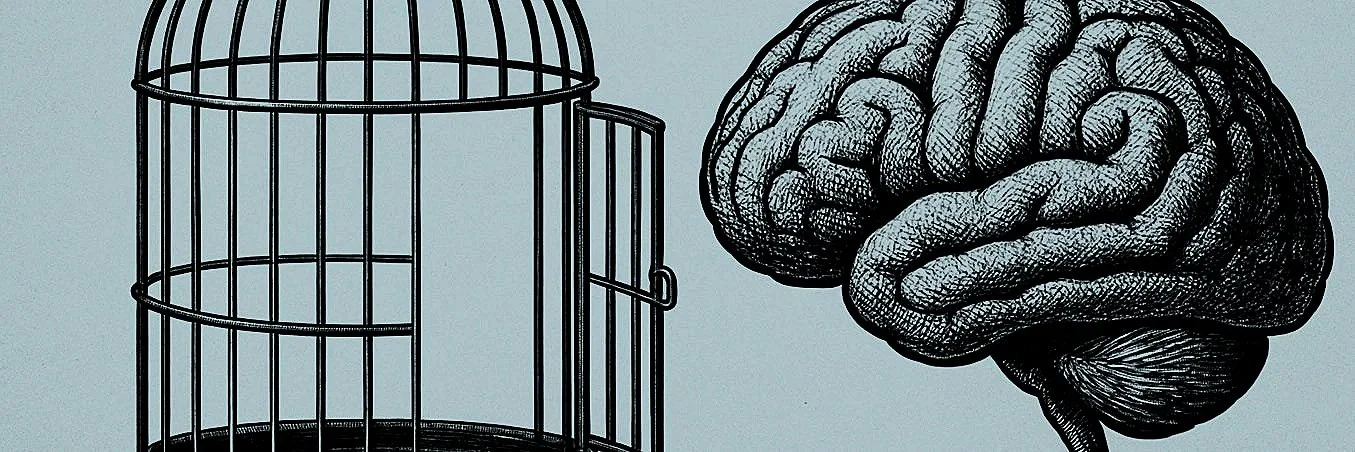This link takes you to my Substack, please then subscribe to join my free community and get my free weekly Newsletter, The Sunday Synapse. I talk about critical thinking and how to use it when assessing regular human life. It has lessons, activities and courses which will help you improve how you make decisions in relationships, home life, social life, and work life!
Scroll down for my previous letters and topics!
TAKE THE TEST
〰️
TAKE THE TEST 〰️
LETTERS & TOPICS
INTELLECTUAL EMPATHY
Our capacity to use critical thinking to assess human emotion will increase our emotional intelligence. However, to do this, you need intellectual empathy. Using IE effectively will improve your relationships and increase your social intelligence over time. I discuss how practices like open-mindedness, courage and tenacity build the resilience needed to help understand others without taking on their burdens.
SOCIAL INTELLIGENCE
Social intelligence is the capacity to observe, interpret, evaluate, and apply social patterns as actionable knowledge, enabling you to navigate any social environment effectively. By practising The Method—observe > interpret > evaluate > apply—alongside reflexivity, you learn to recognise and effectively use personal biases, recognise unspoken norms, and refine decisions over time. This dynamic interplay between social insight and psychological resilience empowers you to make context-sensitive choices.
Innovative thinking springs from the freedom to question and explore beyond prescribed and pre-designed boundaries—asking “why,” “how,” and “what if”. This is important when we encounter knowledge gaps, as this is an opportunity for thinking beyond perceived limits. become opportunities. By practising critical thinking fully, whether in childhood curiosity or adult professional life, you can access your full cognitive potential. This article discusses how leaders and people in charge of our minds can limit the belief in our potential.
HOW TO BE INNOVATIVE OR TO THINK FREELY
INNER AND OUTER WORLD: HOW CRITICAL THINKING HELPS YOU GET TO KNOW YOURSELF
This week’s newsletter draws on 15 years of frontline sociological work, 40 years of personal experience, and the dual roles of mother and academic to introduce the Intelligence Code™—which integrates critical thinking and emotional intelligence. Intelligence is about how well you can test ideas, create knowledge, and apply that understanding to your life. The better you can do this, the better the outcomes are for you. The letter discusses the idea of reflexivity, where you get to know yourself and learn to recognise and bridge mismatches between your inner needs and the social world.
This week, the letter explores how to choose the best judges for your ideas, actions, and personal growth. Our ideas need judges or they stay the same and do not develop. We revisit some of the oldest ideas about judgement, from Ancient Egypt to the Biblical era, and connect them to modern critical thinking. You’ll learn why self-accountability is harder today, and why wisely chosen external judges are essential for true cognitive and emotional development.
HOW TO CHOOSE THE BEST JUDGES
FEEDBACK MAKES YOU SMARTER
This letter explores how feedback—especially the uncomfortable kind, is essential for intellectual and emotional growth. We look at how voluntary challenge, critical reflection, and lifelong learning build valuable thinking skills. You’ll learn why the best ideas, while uncomfortable, are born under pressure and how to use feedback wisely to become a stronger, smarter thinker. Intellectualism is possible, but it has to be triggered.
JUDGEMENTS ARE BASED ON WHAT WE THINK WE NEED TO PROTECT
Our biases drive judgement, and this week I discuss when judgement is healthy, and when it can mislead us. Drawing on thinkers like Hannah Arendt, Daniel Kahneman, and Jonathan Haidt, I shows how deep thinking only happens when we are emotionally or socially pushed to rethink what we believe. You’ll learn why good judgement needs discomfort, reflection, and the courage to examine your own mind.
HOW TO LOGICALLY INCREASE YOUR EMOTIONAL INTELLIGENCE
This week's article explores how emotional intelligence (EQ) can be logically developed through self-awareness, empathy, and social skills. Drawing on Daniel Goleman’s work, it explains how critical thinking and emotional growth go hand in hand, helping us think more clearly, reflect more deeply, and interact more wisely in a psychologically complex and rapidly changing world.
CONSTRUCT YOUR LIFE WITH LOGICAL AND EMOTIONAL INTELLIGENCE
Today, our critical thinking lesson explores how we can construct our lives using both logical and emotional intelligence. Drawing from a social constructivist and interdisciplinary approach, it shows how critical thinking, emotional self-awareness, and wise social choices help align our external world with our internal needs. In particular, it shows how we can lead ourselves toward resilience and mental health.
HOW CRITICAL THINKING MATURES EMOTIONAL INTELLIGENCE
This week’s lesson explores how critical thinking strengthens emotional intelligence. I explain why we must logically understand our emotions to make better decisions, protect our mental health, and improve our lives. While we have emotional awareness, we need to mature it to make emotionally intelligent decisions. Emotional maturity and cognitive reflection are equally essential for balancing logic and feeling.
RATIONALITY AT ITS BEST
This week’s I discuss how as thinking, and feeling humans, we can balance head and heart so we can make better decisions about what’s going wrong—or right—in our lives. You’ll learn why telling yourself the truth, noticing patterns, and staying open to feedback can dramatically improve everything from your career to your relationships. Most importantly, it’s about using logic without losing your humanness.
Sign up to my newsletter
〰️
Sign up to my newsletter 〰️
This link takes you to my Substack, please then subscribe to join my free community and get my free weekly Newsletter, The Sunday Synapse. I talk about critical thinking and how to use it when assessing regular human life. It has lessons, activities and courses which will help you improve how you make decisions in relationships, home life, social life, and work life!













